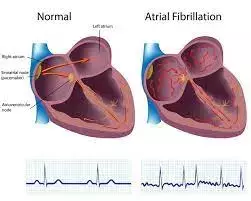- Home
- Medical news & Guidelines
- Anesthesiology
- Cardiology and CTVS
- Critical Care
- Dentistry
- Dermatology
- Diabetes and Endocrinology
- ENT
- Gastroenterology
- Medicine
- Nephrology
- Neurology
- Obstretics-Gynaecology
- Oncology
- Ophthalmology
- Orthopaedics
- Pediatrics-Neonatology
- Psychiatry
- Pulmonology
- Radiology
- Surgery
- Urology
- Laboratory Medicine
- Diet
- Nursing
- Paramedical
- Physiotherapy
- Health news
- Fact Check
- Bone Health Fact Check
- Brain Health Fact Check
- Cancer Related Fact Check
- Child Care Fact Check
- Dental and oral health fact check
- Diabetes and metabolic health fact check
- Diet and Nutrition Fact Check
- Eye and ENT Care Fact Check
- Fitness fact check
- Gut health fact check
- Heart health fact check
- Kidney health fact check
- Medical education fact check
- Men's health fact check
- Respiratory fact check
- Skin and hair care fact check
- Vaccine and Immunization fact check
- Women's health fact check
- AYUSH
- State News
- Andaman and Nicobar Islands
- Andhra Pradesh
- Arunachal Pradesh
- Assam
- Bihar
- Chandigarh
- Chattisgarh
- Dadra and Nagar Haveli
- Daman and Diu
- Delhi
- Goa
- Gujarat
- Haryana
- Himachal Pradesh
- Jammu & Kashmir
- Jharkhand
- Karnataka
- Kerala
- Ladakh
- Lakshadweep
- Madhya Pradesh
- Maharashtra
- Manipur
- Meghalaya
- Mizoram
- Nagaland
- Odisha
- Puducherry
- Punjab
- Rajasthan
- Sikkim
- Tamil Nadu
- Telangana
- Tripura
- Uttar Pradesh
- Uttrakhand
- West Bengal
- Medical Education
- Industry
Systematic screening for AF tied to lower morbidity and mortality in elderly: Lancet

Screening for atrial fibrillation is safe and beneficial in older populations, according to a recent study published in the Lancet.Systematic screening for AF tied to lower morbidity and mortality in elderly reveals the study.
Atrial fibrillation is a leading cause of ischaemic stroke. Early detection of atrial fibrillation can enable anticoagulant therapy to reduce ischaemic stroke and mortality. In this randomised study in an older population, we aimed to assess whether systematic screening for atrial fibrillation could reduce mortality and morbidity compared with no screening.
STROKESTOP was a multicentre, parallel group, unmasked, randomised controlled trial done in Halland and Stockholm in Sweden. All 75–76-year-olds residing in these two regions were randomly assigned (1:1) to be invited to screening for atrial fibrillation or to a control group. Participants attended local screening centres and those without a history of atrial fibrillation were asked to register intermittent electrocardiograms (ECGs) for 14 days. Treatment with oral anticoagulants was offered if atrial fibrillation was detected or untreated. All randomly assigned individuals were followed up in the intention-to-treat analysis for a minimum of 5 years for the primary combined endpoint of ischaemic or haemorrhagic stroke, systemic embolism, bleeding leading to hospitalisation, and all-cause death. This trial is registered with ClinicalTrials.gov, NCT01593553.
The Findings of the study are as follows:
- From March 1, 2012, to May 28, 2014, 28 768 individuals were assessed for eligibility and randomly assigned to be invited to screening (n=14 387) or the control group (n=14 381).
- 408 individuals were excluded from the intervention group and 385 were excluded from the control group due to death or migration before invitation. There was no loss to follow-up.
- Of those invited to screening, 7165 (51·3%) of 13 979 participated.
- After a median follow-up of 6·9 years (IQR 6·5–7·2), significantly fewer primary endpoint events occurred in the intervention group than in the control group.
Thus, the researchers concluded that screening for atrial fibrillation showed a small net benefit compared with standard of care, indicating that screening is safe and beneficial in older populations.
Reference:
Clinical outcomes in systematic screening for atrial fibrillation (STROKESTOP): a multicentre, parallel group, unmasked, randomised controlled trial by Emma Svennberg et al. published in the Lancet.
Dr. Shravani Dali has completed her BDS from Pravara institute of medical sciences, loni. Following which she extensively worked in the healthcare sector for 2+ years. She has been actively involved in writing blogs in field of health and wellness. Currently she is pursuing her Masters of public health-health administration from Tata institute of social sciences. She can be contacted at editorial@medicaldialogues.in.
Dr Kamal Kant Kohli-MBBS, DTCD- a chest specialist with more than 30 years of practice and a flair for writing clinical articles, Dr Kamal Kant Kohli joined Medical Dialogues as a Chief Editor of Medical News. Besides writing articles, as an editor, he proofreads and verifies all the medical content published on Medical Dialogues including those coming from journals, studies,medical conferences,guidelines etc. Email: drkohli@medicaldialogues.in. Contact no. 011-43720751


